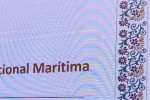
Pedro Cruz.
Veracruz, Ver.- Co-operation in the maritime industry between Lithuania and Germany continues to grow. This is one of the results of the German-Lithuanian Maritime Forum in Klaipėda. Marina Basso Michael, Regional Director Europe at Port of Hamburg Marketing, emphasised the special role of relations between Germany and Lithuania in these difficult geopolitical times: “As ports and shipping companies, we are facing very similar challenges. For example, there is a need to switch our economy to a more sustainable business model based on new technologies. As Europeans, we also need to stand together in the face of growing risks in an increasingly unstable world”.
Algis Latakas, Director General of the Klaipėda Port Authority, also confirmed that very close relations already exist between the two countries: “The bond between these two nations extends beyond the increasing cargo volumes of recent years and regular maritime services; it is fortified by numerous German companies that have sustained robust relationships with Lithuanian businesses for many years. These connections are further enriched by various collaborative projects and memorandums. The enduring nature of these relationships is exemplified by the DFDS ferry service operating between Klaipėda and Kiel for over three decades. The German-Lithuanian Maritime Forum, hosted in Klaipėda, further underscores the strategic nature of this partnership”.
The Port of Klaipėda features several shipping lines that bridge the ports of Klaipėda and Germany. In 2023, cargo flows to and from Germany accounted for more than 13 percent of the total Klaipeda port throughput, amounting to 4.4 million tons. Of this, roll-on/roll-off cargo constituted 2.4 million tons, containerized cargo 1.1 million tons, and agricultural products 0.3 million tons.
In 2022, the ports of Klaipėda and Hamburg entered into a cooperation memorandum, pledging to deepen port ties, exchange maritime infrastructure development experiences, and embark on joint ventures. In the same year, the Port of Klaipėda became a member of the Hamburg Marketing Association, gaining access to analytical data, market expert insights, and promotional opportunities in German and international markets.
Ferry connections are also an important component between the harbours. Today’s ferry shipping in the Baltic Sea faces a whole array of challenges. The region is negatively affected by the war in Ukraine, increased interest rates and competition. The risk of economic fluctuations in such important markets as Sweden, Germany – in general in the Northern and Western Europe – also forces DFDS to look for new solutions. On the other hand, moving forward shipping will have to adapt to the growing requirements of environmental protection, to look for both short-term and long-term CO2 reduction solutions.
“We observe the growing requirements and demands for sustainable and smart solutions for the transportation and complex supply chains. As a leader in RoRo, we seek to find new ways to serve our customers in a more sustainable and efficient way. We believe that the collaboration with Hamburg, Kiel and Klaipeda ports towards greener solutions will create great value not only for our customers but also for local communities and the world in general. I can say that DFDS has already made big steps in that direction by deploying one of the largest fleet of e-trucks in Europe and aiming to have six green ferries by 2030”, says Aleksej Slipenciuk, Route Director at DFDS.
In 2023, compared to 2022, the company managed to reduce CO2 emissions from ships by 5.4 per cent. In 2024, DFDS further strengthened its leading position in Europe in terms of the number of available electric trucks: it will increase its previously ordered fleet of 125 electric trucks by an additional 100 newly ordered Volvo electric heavy vehicles. By the way, three electric trucks have been working in the Klaipėda region since last June, while ten electric trucks have been employed in Germany, specifically Cuxhaven and Neuen Kirchen. And this is not the end.
DFDS also provides one of the most important ferry connections between the PORT OF KIEL and the PORT OF KLAIPEDA. In 1993, the ferry route was put into operation for the first time by the Lithuanian Shipping Company (LISCO UAB) with the “Siauliai”. Since then, this Baltic Sea route has become increasingly important and now ranks among the highest-volume routes between Germany and the Baltic States. With the Aura Seaways, the operator DFDS deployed one of their larger Ropax ferries on this route in the beginning of 2024, followed by rising freight numbers. With onshore power infrastructure at all ferry terminals, the port plans to supply the ferries on the Kiel-Klaipeda route with green energy in the future.
“The connection between Kiel and Klaipeda has been a solid rock, especially in these difficult geopolitical times. Over three decades of good cooperation – and a route that underlines its relevance not only by growing freight numbers but the sheer need of a reliable sea connection between Germany and Lithuania”, says Dr. Dirk Claus, CEO PORT OF KIEL.
Its geographic location, permanent depth for seagoing vessels and the direct link to the national rail and road network make the port of Kiel attractive for cargo and passenger traffic alike, focusing on the routes towards Scandinavia and Lithuania as well as the cruise industry. In 2023, the port recorded a historic peak in both passengers’ numbers (+22 per cent) and freight (+3 per cent).











